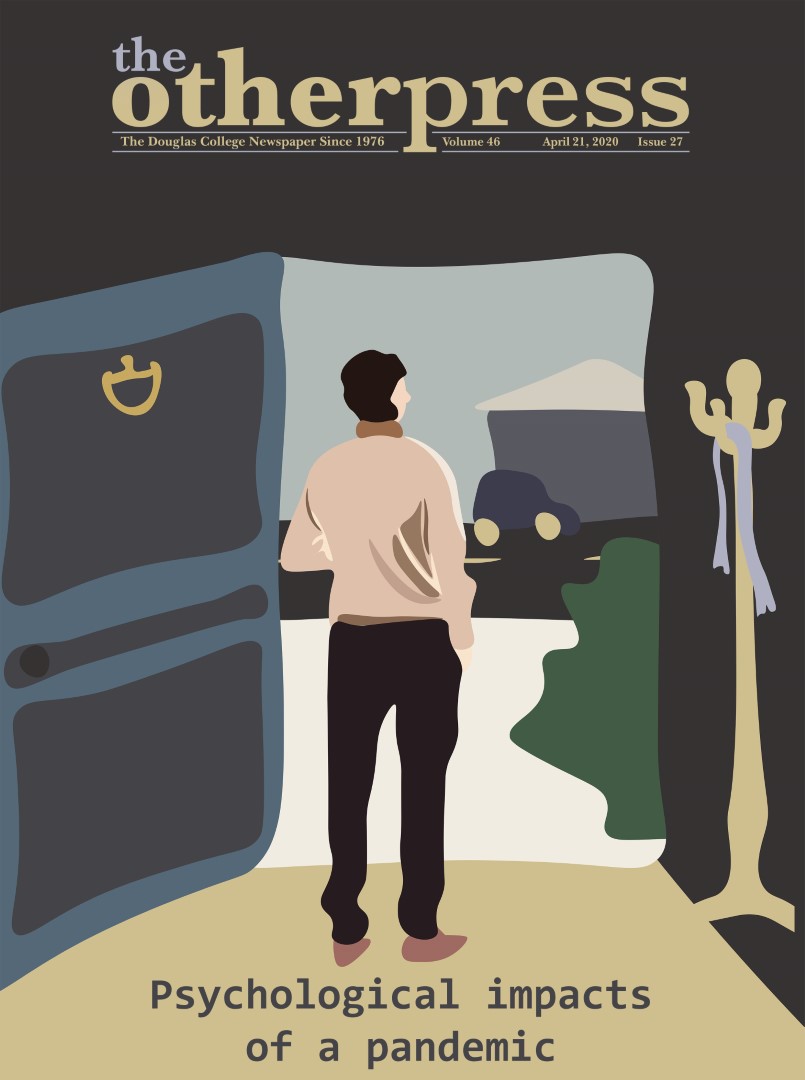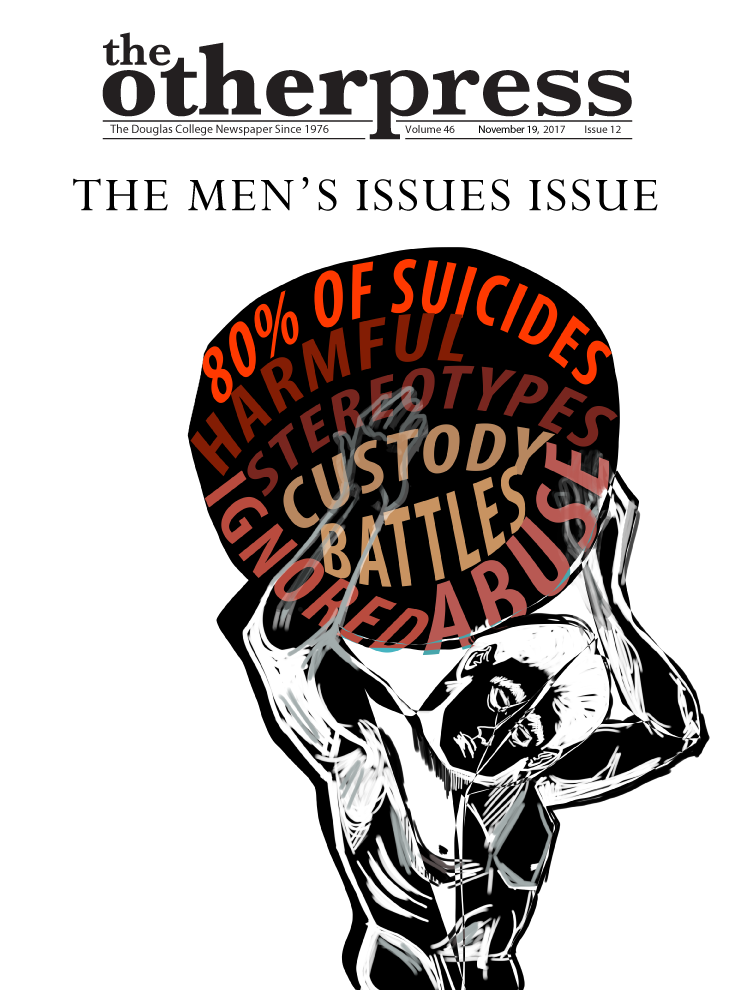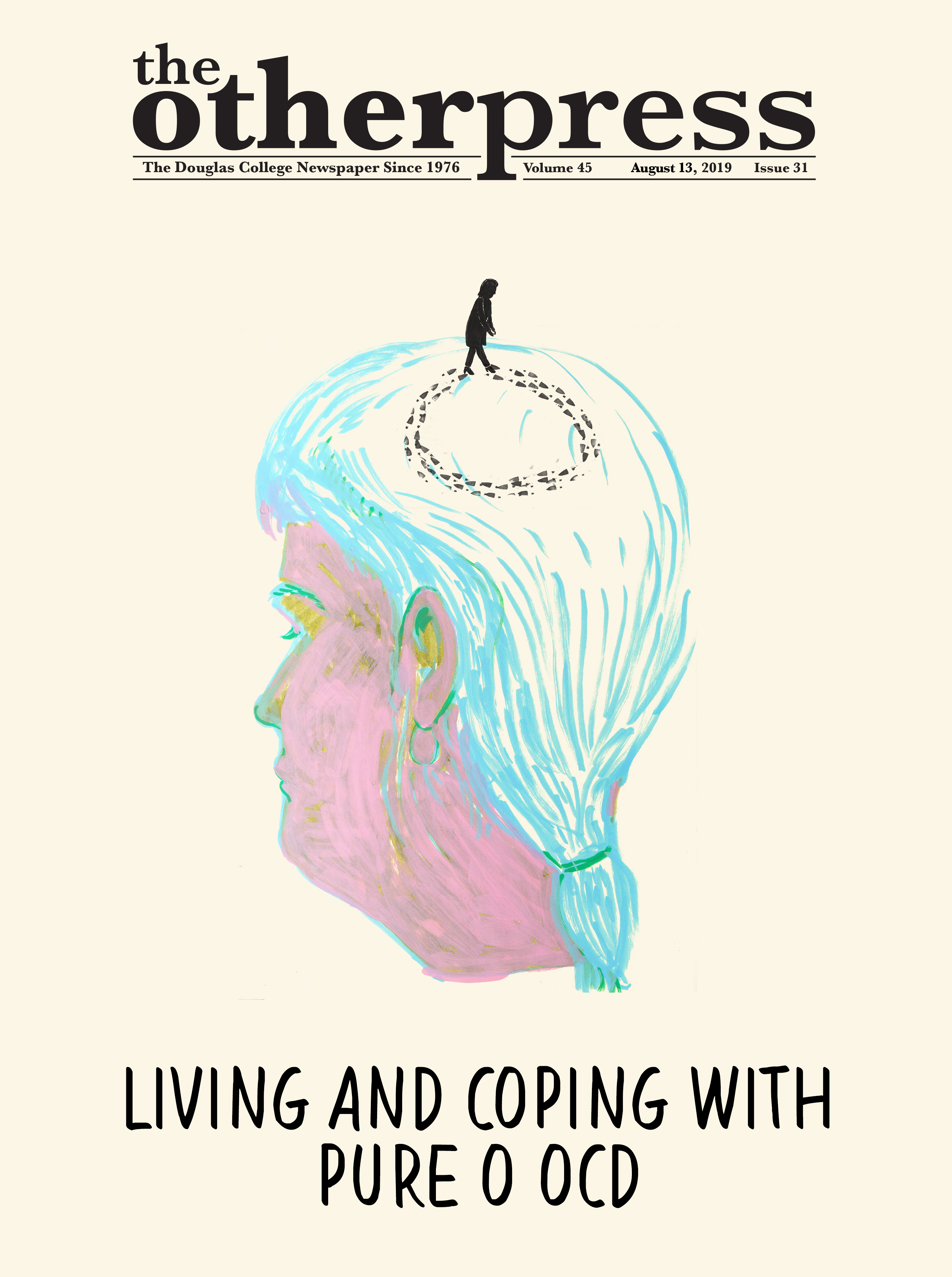
Douglas College Professor sheds some light on the psychological effects of COVID-19
By Jessica Berget, Editor-in-Chief
Before this epidemic, many of us wondered what it would be like to live through a major historical life event. Now that we are living it, we can’t wait for everything to go back to normal. But with the economic and mental consequences that come in the aftermath of a major virus, we might not know “normal” for a long time. This kind of an event can have a profound long-term psychological impact on those who go through it. So, what kind of effects can we possibly expect as a result from this virus? The Other Press asked Douglas College Psychology Professor Raquel Chapdelaine about her thoughts on the psychological impacts of COVID-19.
How can quarantine affect a person’s psychology?
On the topic, one thing Chapdelaine wanted to clarify is that it’s important to not make overgeneralizations, and that one’s experiences may be entirely different from another’s. It’s because factors such as socioeconomic status, gender, and occupation will influence how people might deal with this pandemic. “For example, a front-line pandemic worker, such as a health care provider, is arguably experiencing higher levels of anxiety than an office worker who can work remotely from the comfort of their spacious home (and who also enjoys peaceful family relations, we should add),” she said. She highlights that for the health care provider, stress attacks them from multiple fronts: personal health, infecting family, and the excessive burden on the medical system to name a few.
She mentions that there are many vulnerable people who are being negatively impacted by this virus, such as people who live in poverty or substandard housing who have a higher risk of contracting coronavirus. Chapdelaine also notes that domestic abuse, especially against women, is seeing a rise as a result of this epidemic. They have no safe place to quarantine and that takes quite a toll on a person. “Unlike those for whom home means a safe haven from the virus, victims of domestic violence have no respite: the threat is both inside and out.” In times like these she says, “Empathy should be in. Narcissism out.” Again, everyone is impacted differently. “One size certainly does not fit all” when it comes to the effects of this pandemic. Only in acknowledging the diverse experiences everyone faces now that we will be able to create interventions that are actually helpful, she states.
What psychological effects can a virus have on a person?
Chapdelaine says two basic psychological needs have been challenged during this time: security and the need for autonomy. The absence of these things can be stressful. When both needs are satisfied, mentally well-being and an even temper can be achieved. Yet the pandemic has hit us where it hurts; the loss of jobs and stability undermines one’s need for security, showing us all that “our control over the future is, to a significant extent, illusory.” She also notes the presence of a virus like this can make us think about our own mortality and the effect this can have. “The pandemic has brought to the forefront that which we constantly trying to ignore: our mortality. These are very hard blows to our human vanity and narcissism!”
On possible novel outcomes of this pandemic
On the possible unique impacts that we might see as a result of this pandemic, Chapdelaine thinks that predicting the future is a “hazardous business” but offers some educated guesses based on the psychological literature. Firstly, she points to the fact that psychotherapists who work with couples are predicting that isolation at home could trigger a rise in divorces. A report from Global News states that the divorce rate in China has surged during COVID-19. Second, “research from social psychology predicts that, in times when individuals become more vulnerable to death anxiety, there tends to be a rise in prejudice and racism,” she said. Chapdelaine is also curious about how our fast-paced technological culture will influence people’s behaviour after COVID-19. To explore this, she offers several observations.
First, the fact that “we live in a fast-paced technological culture that does not encourage individuals to take the time to carefully evaluate a stimulus, before responding to it.” As a culture, we have become, she says, untrained in the valuable skills of careful deliberation and delayed gratification. We need this patience though! Without it, we lose the ability to act rationally. Her hypothesis, which we should take heed to as students potentially on summer break soon, is that we could behave irrationally when the pandemic lockdown is lifted, thus compromising the gains and benefits of the physical distancing measures. “There may be some who could react with excessive carelessness, joy, indulging in all sorts of passions. By contrast, others may succumb to irrational fears about venturing out because strong emotional cues will cloud over the ability to [properly] evaluate the stimulus.” She cautions again that it is hard to see past the present, however.
What she hopes for the future
She hopes that this forced pause will counter her hypotheses. Perhaps, she states, this isolated time will allow us to “nurture back our capacity for reflection.” Her view is that this period could allow us to imagine a new beginning instead of a return to the norm. She points out that the word “Krisis,” in its origins, meant “the turning point in a disease in which there would be recovery or death.” She hopes that this crisis will educate us on the best decisions to recover life—and go beyond that to “affirm life.”
If history is doomed to repeat itself, we can thank our lucky stars humans are such adaptable creatures. The faster we can adapt to these new surroundings, ideas, and information, the faster we can resume our lives with a degree of normalcy. Life will go on, and so will we, as we have seen historically.

